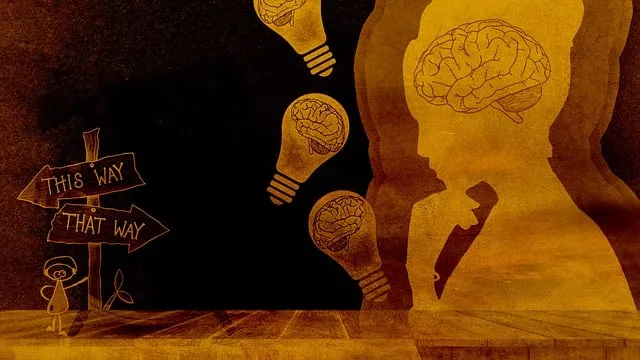Mental illness stigma is a significant challenge in Colorado Springs, hindering access to treatment and causing isolation. To combat this, organizations offer educational resources and support services. Kaiser in Colorado Springs provides essential inpatient mental health services, addressing the need for accessible treatment. Through open discussions, education programs, and integrated policies, Kaiser fosters a more inclusive environment where individuals can prioritize their mental well-being without fear of judgment or societal barriers, effectively reducing the stigma surrounding mental health issues in the city.
Mental illness stigma remains a pervasive issue, but efforts to reduce it are gaining momentum in communities worldwide, including Colorado Springs. This article explores strategies aimed at breaking down barriers and fostering understanding. We delve into the causes and impact of mental illness stigma locally, examine Kaiser’s inpatient mental health services as an initiative towards reduction, and highlight community engagement strategies that prove effective. By addressing these aspects, we aim to illuminate paths toward a more inclusive and supportive environment for those facing mental health challenges in Colorado Springs, considering even Kaiser has inpatient mental health services available.
- Understanding Mental Illness Stigma: Causes and Impact in Colorado Springs
- Kaiser's Inpatient Mental Health Services: A Step Towards Reducing Stigma
- Community Engagement Strategies for Effective Stigma Reduction Efforts
Understanding Mental Illness Stigma: Causes and Impact in Colorado Springs

Mental illness stigma, a pervasive issue, significantly impacts individuals and communities alike, with Colorado Springs being no exception. This perception often stems from lack of understanding and misinformation about various mental health conditions. In an effort to combat this, initiatives focused on education and awareness are crucial. Many organizations in Colorado Springs offer resources like Depression Prevention programs and Trauma Support Services to promote resilience building and reduce the stigma surrounding mental illness. Notably, Kaiser in Colorado Springs provides inpatient mental health services, recognizing the importance of accessible treatment options.
The impact of stigma is profound, leading to isolation, discrimination, and delayed or avoided treatment- seeking behaviors. This can exacerbate existing conditions, particularly for vulnerable populations such as youth and those experiencing homelessness. By addressing these issues openly and providing platforms for education and support, Colorado Springs is taking steps towards a more inclusive and supportive environment, where mental health is prioritized without fear of judgment or societal barriers.
Kaiser's Inpatient Mental Health Services: A Step Towards Reducing Stigma

In Colorado Springs, Kaiser has made significant strides in challenging mental illness stigma through its robust Inpatient Mental Health Services. This initiative represents a strategic move to de-stigmatize mental health concerns and offer comprehensive care in a supportive environment. By providing specialized inpatient facilities, Kaiser ensures individuals experiencing severe mental health crises receive the attention they need without judgment or ostracism.
The hospital’s approach integrates various aspects of Mental Health Policy Analysis and Advocacy, Mental Wellness Podcast Series Production, and Mental Health Education Programs Design. Through these efforts, Kaiser aims to foster open conversations about mental wellness, dispel misconceptions, and promote understanding. Such innovative strategies not only support those directly affected but also contribute to a broader Mental Health Education landscape, ultimately reducing the societal stigma associated with seeking mental health services.
Community Engagement Strategies for Effective Stigma Reduction Efforts

In reducing the stigma associated with mental illness, community engagement plays a pivotal role. Colorado Springs, like many urban centers, has resources such as Kaiser’s inpatient mental health services available to residents seeking help. To effectively combat stigma, it’s crucial to involve the community in proactive ways. One powerful strategy is hosting educational workshops and awareness campaigns that dispel myths about mental health conditions. These initiatives can be organized by local non-profits, schools, and healthcare providers like Kaiser Permanente Colorado Springs, integrating insights from risk management planning for mental health professionals to ensure sensitive handling of issues.
Community engagement also involves fostering open conversations about mental illness through support groups and peer mentorship programs. Trauma support services tailored to the unique needs of Colorado Springs residents can significantly contribute to stigma reduction. By encouraging individuals to share their experiences and connecting them with available resources, these efforts create a supportive environment that promotes understanding and reduces fear or judgment. Additionally, incorporating stress management techniques into community engagement strategies can help individuals cope better, thereby indirectly addressing mental health stigma by improving overall well-being.
In Colorado Springs, addressing mental illness stigma is paramount. The article has explored various facets, from understanding the causes and impacts of this societal barrier to examining innovative solutions like Kaiser’s inpatient mental health services. Community engagement strategies are highlighted as key to effective stigma reduction efforts, emphasizing the collective responsibility in fostering a more inclusive and supportive environment for those facing mental health challenges. By leveraging resources available, such as Kaiser’s services, and empowering community involvement, Colorado Springs can work towards a future where mental illness is met with compassion and understanding.


